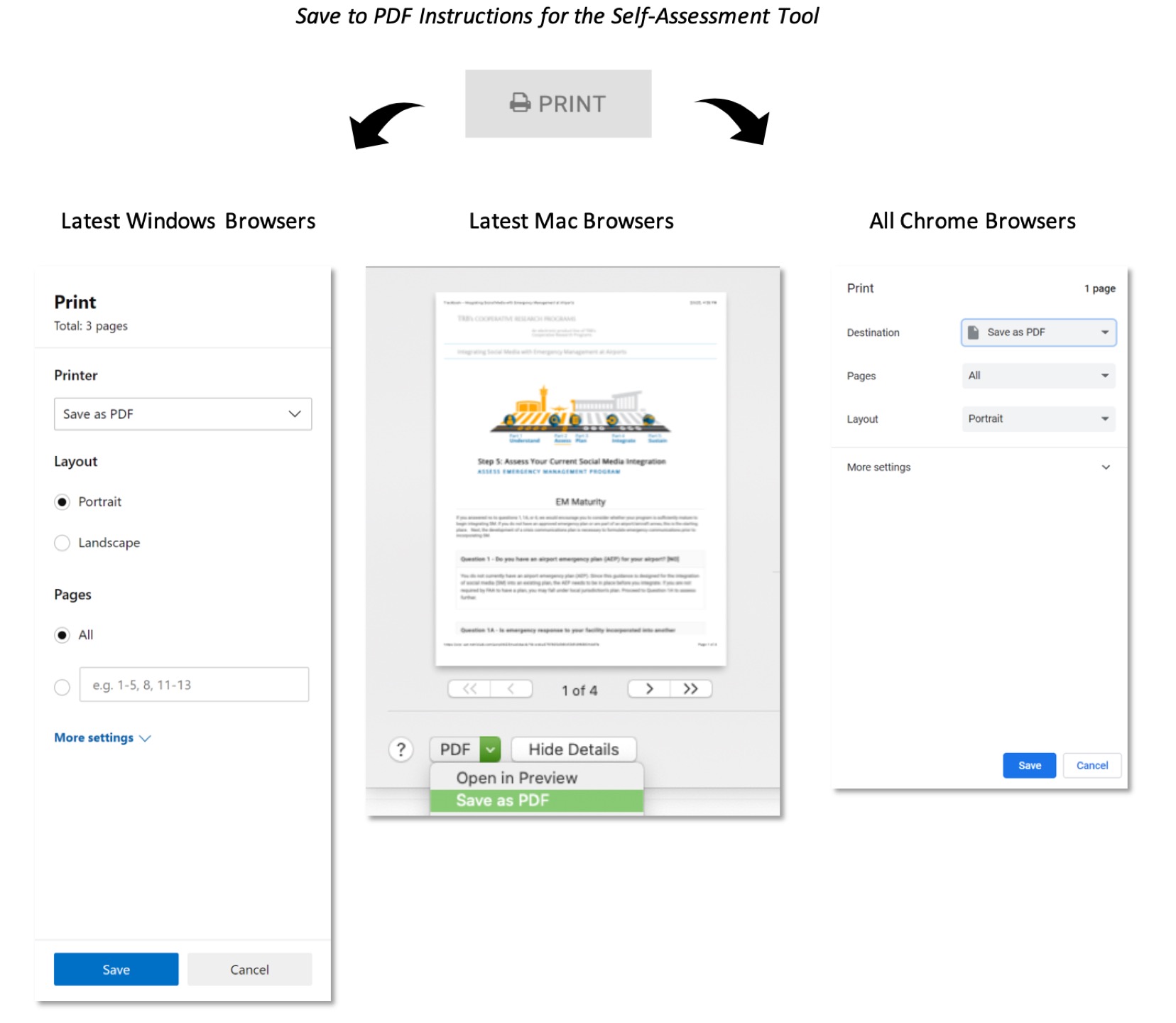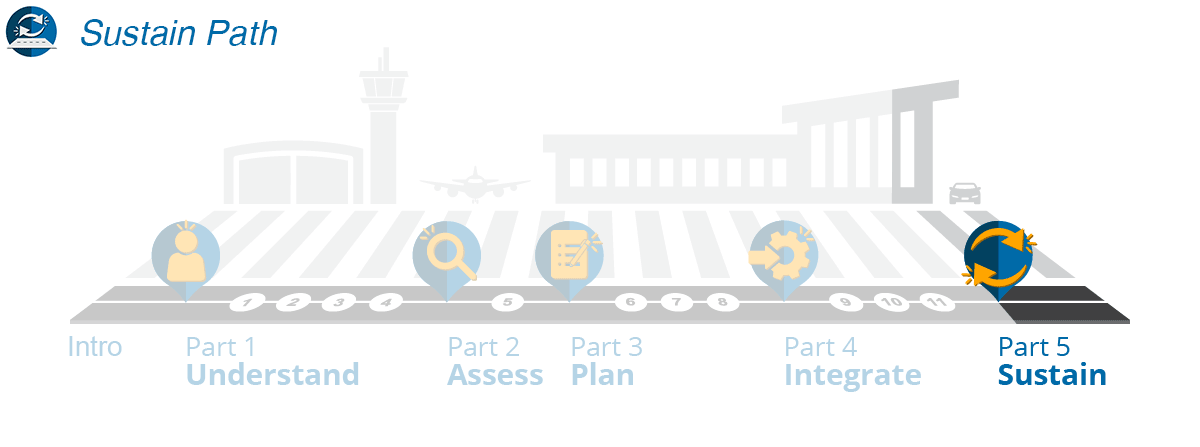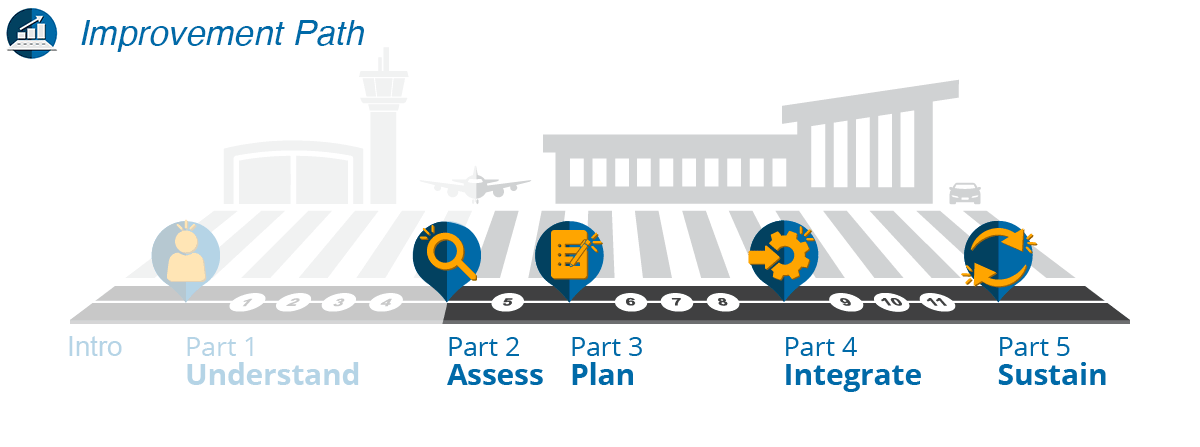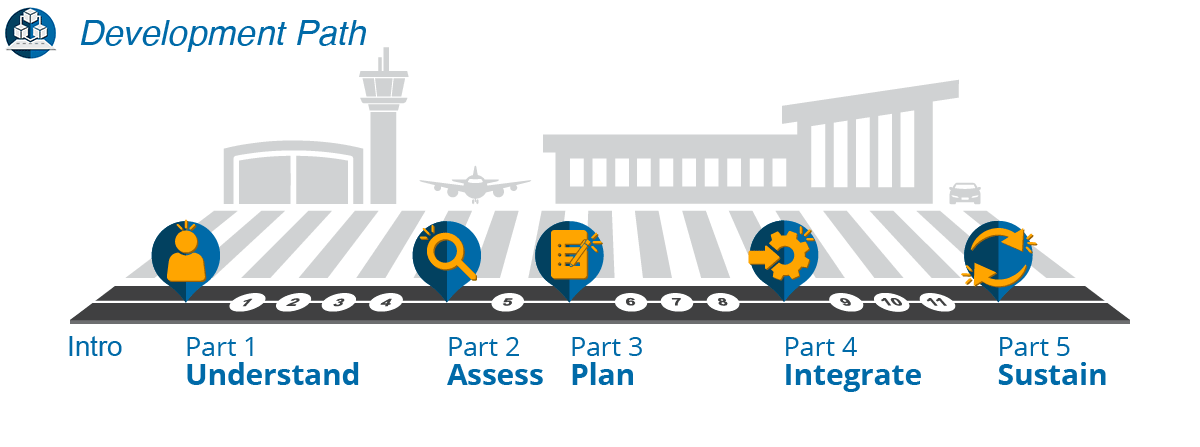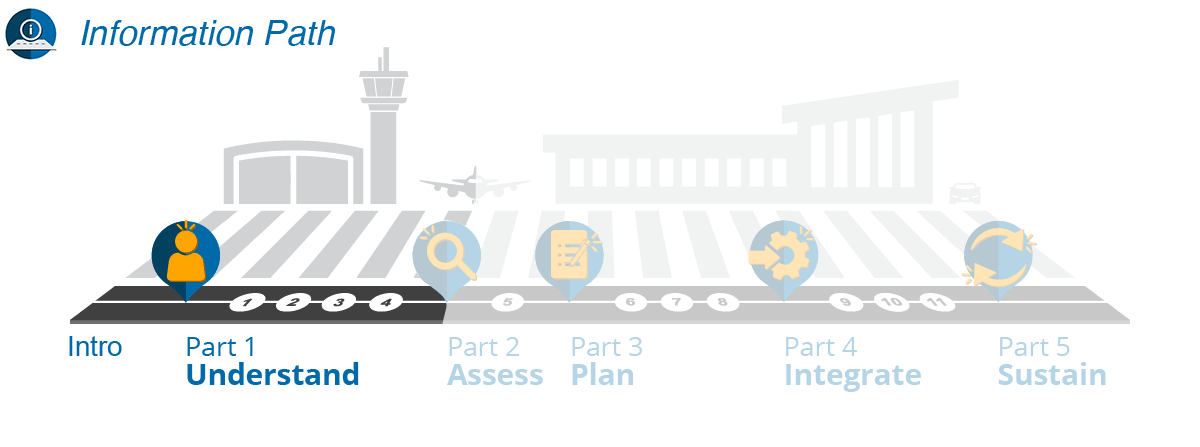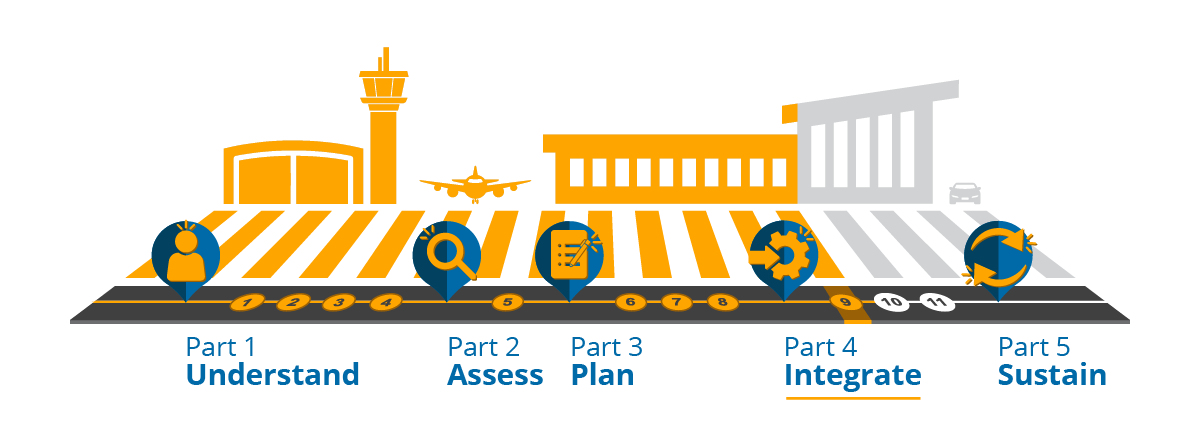
Step 9: Establish Your Integration Needs
Policies, Agreements, and Legal Issues
It is necessary for the airport operator, as well as the stakeholder community team, to set up operating structures, including policies, agreements, and legal review. These structural elements define how the roles will interact and determine the rules under which the team agrees to operate. By establishing good structures, you will help to improve trust and collaboration while providing a favorable and predictable operating environment. In this step, the research team describes three fundamental actions to take in establishing policies and agreements:
- Set policies
- Execute partnering/alignment agreements/memoranda of understanding
- Understand the legal issues
Set Policies
Setting well-written policies provides clear operating parameters for those engaging in SM activities. Therefore, it is important that you prepare your policies and agreements in a very specific and understandable manner for staff and stakeholders. In starting out, you can use your standard operating procedures as you develop your SM policy for employees and those doing business with the airport. Building on this foundation, the SMEM champions and the community team stakeholders should develop a policy for how they will use SM during an incident. In setting the SM policy, you will want to ensure that it is not in conflict with your employee policies. We suggest you refer to the CDC Social Media Policy as an example. A good SM policy should address the following:
- Reason for the policy
- Types and acceptable use of SM tools
- Definitions for proper and improper conduct
- Processes and responsibilities
- Restrictions (content sharing, information disclosure, legal and regulatory, etc.)
Once you have developed the policy, you should distribute it to the whole airport community to obtain acknowledgment by those who have roles in your emergency plan. By doing so, you will achieve a broad awareness of SM policy uses even with those not directly involved in the SMEM activities.
Execute Partnering/Alignment Agreements/Memoranda of Understanding
In some cases, you may find that formal partnerships and agreements are necessary as a mechanism for providing system rights, facility access, credentialing, and processing reimbursement. Establishing formal agreements is especially important when seeking federal reimbursement from your state or the Federal Emergency Management Agency (FEMA) following a disaster declaration. In preparing the formal agreements, you should identify how those in the community will collaborate, communicate, respond, and support one another during an incident. You should also consider including requirements for command or reporting structure and processes and policies for SM messaging and sharing of staff and equipment. Although formal agreements are not necessarily required, we recommend you consult with your legal staff to ensure you put in place the proper level of agreement.
Depending on your organization’s structure, you may have to prepare a stand-alone SM agreement. However, it may be acceptable to modify existing agreements and incorporate SM integration elements within the agreement. For additional information, we recommend you review the following resources:
- “Memorandum of Understanding & Mutual Aid Agreements,” Centers for Disease Control and Prevention (CDC) (https://www.cdc.gov/aging/emergency/legal/agreements.htm)
- “Disaster-Specific Memorandum of Understanding,” FEMA (https://www.fema.gov/media-library-data/1416583062704-86cb8bebe23906b594ce14860d86f8af/Disaster-Specific_MOU_updated_weblinks.pdf). Although this is geared more toward federal agencies, it provides a good format that can be used by any size airport.
- “CDC Enterprise Social Media Policy,” CDC, (https://www.cdc.gov/socialmedia/tools/guidelines/pdf/social-media-policy.pdf). Although CDC’s policy may be more complex than most airport operators may need, it provides a good basis for the elements to include in your policy and provides resource links at the end.
- ACRP Research Report 182: Guidance for Planning, Design, and Operations of Airport Communication Centers, Transportation Research Board (http://www.trb.org/Publications/Blurbs/177052.aspx). Section 2.1 provides a good overview and reference for policy development.
Understand the Legal Issues
As you proceed with SMEM, SM tool users (such as airport staff, PIOs, and personnel in the JIC and EOC) need to understand that the use of SM brings certain expectations and limitations that should be respected. Much of what occurs within SM happens in public and can have an effect on how the airport operator and the community are perceived. As noted above, you should prepare your policies and agreements in a very specific and understandable manner for staff and stakeholders. Policies and agreements should address the following legal issues:
- Discrimination/Harassment: ensure your SM channel is adequately monitored for any discriminatory or harassing posts/comments. Your SM policy and channel should contain language strictly prohibiting these types of actions.
- Intellectual Property: understand exactly what is confidential, such as trade secrets and financial information.
- Privacy [Health Insurance Portability and Accountability Act (HIPPA), Communications Decency Act]: privacy rights are codified in both federal and state law and should be reviewed as part of your policies and agreements.
- Computer Hacking: understand how to protect SM channels from use as a conduit to insert malware or viruses.
- Copyright and Fair Use: know how to properly use an excerpt and how to give attribution. Also be aware of when an author’s permission is required.
- Privacy Policy: if you collect information on those who subscribe to your site, identify what information gets collected on your SM channel and how it can be used.
- Defamation: the act of communicating false statements about a person that injure the reputation of that person.1
- Libel: a written or oral defamatory statement or representation that conveys an unjustly unfavorable impression.2
As you draft your policies and agreements, we suggest you have your airport’s legal counsel review them initially and through regularly scheduled plan reviews. We further suggest that as you provide training for your personnel, include a module on the legal aspects of SM. The legal environment is ever-changing with additional legislation being proposed frequently.
Tips for the Small Airport
Using your professional network, seek out examples of policies used by other airports or municipalities.
REFERENCES
- “Defamation,” Merriam Webster, Inc., accessed November 1, 2019, https://www.merriam-webster.com/dictionary/defamation.
- “Libel,” Merriam Webster, Inc., accessed November 1, 2019, https://www.merriam-webster.com/dictionary/libel.
